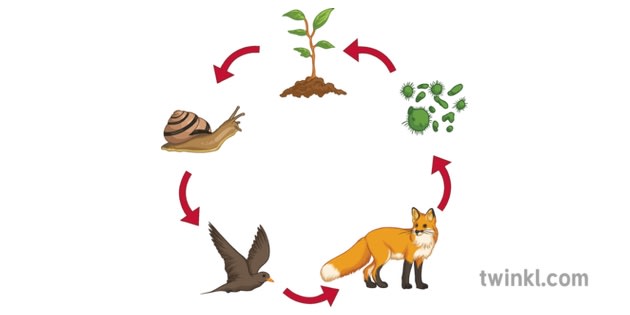Ph.D. in Consumer Science: Introduction, Admission, Registration, Eligibility, Duration, Fees, Syllabus 2024

Introduction:
Diving into the interdisciplinary field of Consumer Science through a Ph.D. offers insights into understanding consumer behavior, market trends, and product development strategies. This comprehensive guide provides insights into the admission process, eligibility criteria, completion time, career prospects, syllabus overview, internship opportunities, scholarships, and FAQs relevant to this dynamic field.
Admission Process:
- Research: Explore universities offering Ph.D. programs in Consumer Science and identify faculty whose research aligns with your interests.
- Application Submission: Complete online applications, including transcripts, recommendation letters, statement of purpose, and GRE scores (if required).
- Entrance Exam: Some institutions may require standardized tests like GRE.
- Interview: Shortlisted candidates may undergo interviews to assess research potential and fit with the program.
Eligibility:
- Educational Qualifications: A master's degree in Consumer Science, Marketing, Psychology, Sociology, or related fields from a recognized institution.
- Academic Performance: Strong academic record, typically with a minimum GPA requirement.
- Research Experience: Prior research experience, publications, or projects in consumer behavior or related fields demonstrating research aptitude.
- Analytical Skills: Proficiency in data analysis and research methodologies, often demonstrated through coursework or research projects.
Completion Time:
The duration of a Ph.D. program in Consumer Science typically ranges from 4 to 6 years, incorporating coursework, research, and dissertation writing. However, individual completion times may vary based on research progress and program structure.
Career Opportunities:
- Academia: Opportunities for research and teaching positions in universities and research institutions, contributing to advancements in consumer behavior theory and market research methodologies.
- Industry Research: Roles in consumer insights departments of companies, conducting market research, consumer surveys, and product testing to inform marketing strategies.
- Marketing Consultancy: Employment in marketing consulting firms, providing expertise in consumer behavior analysis, market segmentation, and brand positioning.
- Government Agencies: Positions in governmental bodies focusing on consumer protection, policy-making, and regulatory compliance in areas such as product safety and labeling.
- Nonprofit Organizations: Roles in nonprofit organizations and consumer advocacy groups, advocating for consumer rights and conducting research on consumer welfare issues.
Syllabus:
- Consumer Behavior Theory: Core courses covering theories and models of consumer behavior, including psychological, sociological, and economic perspectives.
- Market Research Methods: Training in quantitative and qualitative research methods, survey design, focus group facilitation, and data analysis techniques.
- Product Development: Study of product innovation processes, new product launch strategies, and consumer acceptance testing methods.
- Marketing Strategies: Exploration of marketing concepts such as branding, advertising, pricing, and distribution channels, with a focus on consumer-centric approaches.
- Consumer Policy and Ethics: Examination of consumer protection laws, ethical considerations in marketing practices, and corporate social responsibility initiatives.
Internship Opportunities:
- Corporate Research Departments: Internships with companies' research departments, gaining hands-on experience in market research, data analysis, and consumer insights.
- Marketing Agencies: Internships with marketing agencies specializing in consumer research, providing exposure to client projects and industry best practices.
- Nonprofit Organizations: Internships with consumer advocacy groups and nonprofit organizations, contributing to research projects, policy analysis, and public education campaigns.
- Government Agencies: Internships with governmental bodies responsible for consumer protection and regulatory compliance, assisting in policy research and enforcement activities.
Scholarships and Grants:
- Institutional Scholarships: Universities often offer merit-based scholarships covering tuition fees and stipends to support living expenses for Ph.D. students in Consumer Science.
- Research Grants: Funding opportunities from governmental agencies, private foundations, and industry associations to support research projects, conference travel, and publication costs.
- Teaching Assistantships: Opportunities to work as teaching assistants, which often come with tuition waivers and stipends, providing valuable teaching experience and financial support.
- Professional Associations: Scholarships and grants offered by professional associations in the field of Consumer Science, such as the Association for Consumer Research (ACR) or the American Marketing Association (AMA).
FAQs:
Can I pursue a Ph.D. in Consumer Science without a master's degree in the field?
While a master's degree in Consumer Science or related fields is preferred, some programs may consider applicants with relevant undergraduate degrees and strong academic backgrounds in related disciplines.
How important is prior research experience for admission to a Ph.D. program in Consumer Science?
Prior research experience, publications, or projects in consumer behavior or related fields are advantageous but not always required. Admissions committees consider overall academic performance, research potential, and fit with the program.
What opportunities are available for international students pursuing a Ph.D. in Consumer Science?
International students have access to the same opportunities as domestic students, including scholarships, internships, and research grants. Universities often provide support services for international students, including language courses and cultural integration programs.
How can I enhance my chances of securing funding for my Ph.D. studies in Consumer Science?
Explore scholarship opportunities offered by universities, research grants, teaching assistantships, and professional associations. Additionally, consider building a strong research profile through publications and presentations in consumer science.
